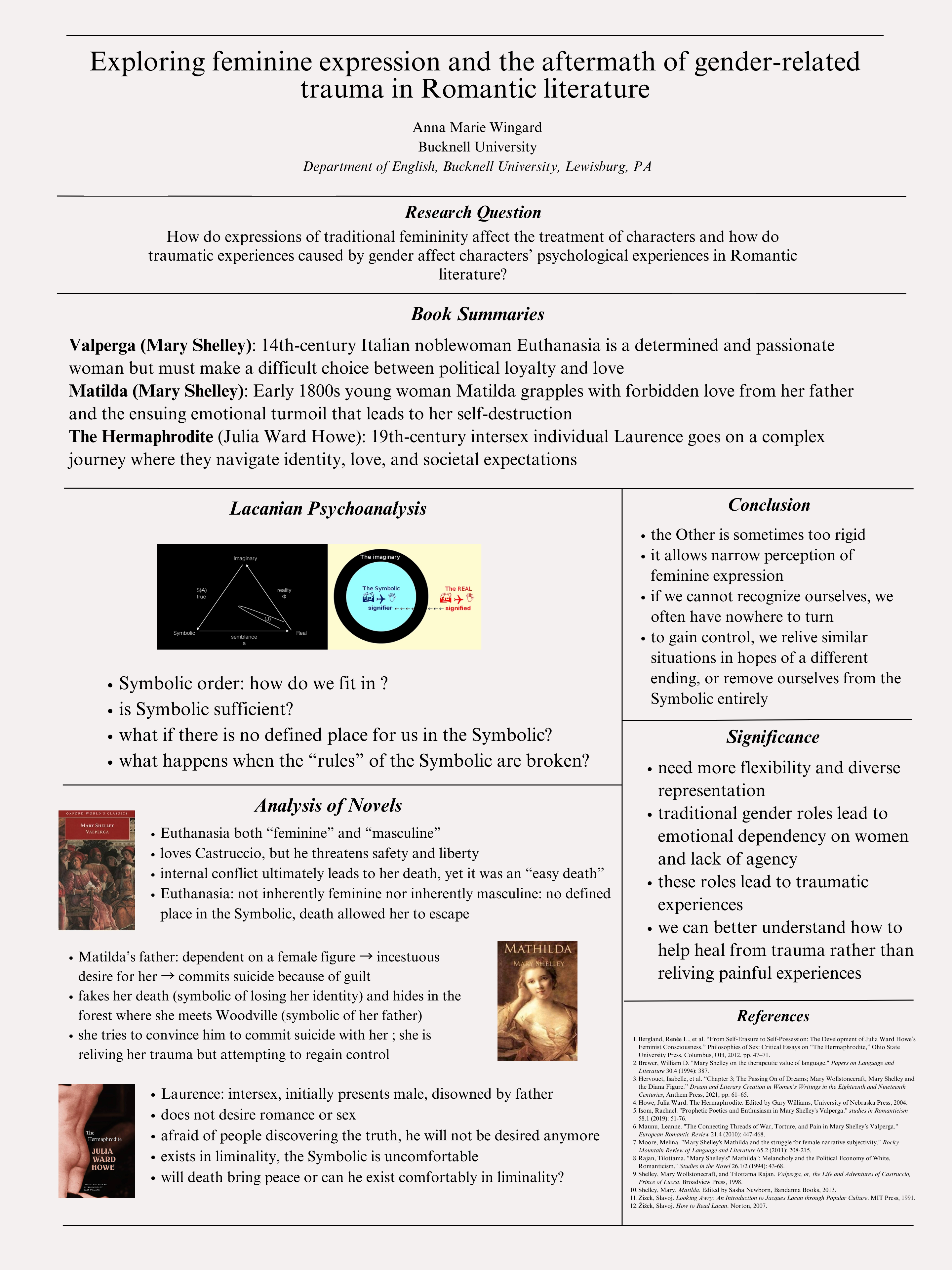
Exploring feminine expression and the aftermath of gender-related trauma in Romantic literature
Author:
Anna Marie Wingard ’25Co-Authors:
Faculty Mentor(s):
Michael Drexler, English Literary StudiesFunding Source:
Mellon Student Summer Research FellowshipAbstract
This study delves into the intricate interactions between expressions of traditional femininity and the psychological complications of gender-based trauma in Romantic literature. Through a nuanced analysis of Mary Shelley’s “Valperga” and “Matilda,” alongside Julia Ward Howe’s “The Hermaphrodite,” this research project investigates how characters negotiate societal expectations, complex desires, and traumatic experiences shaped by gender roles.
In “Valperga,” the protagonist Euthanasia exemplifies a blend of feminine and masculine traits as she grapples with the conflict between political loyalty and love. Her ultimate demise underscores the struggle of individuals occupying undefined spaces within the Symbolic order. Similarly, Matilda’s narrative unveils the consequences of patriarchal dominance, leading to her self-destructive behavior rooted in complex and taboo love and the ensuing emotional turmoil.
Contrasting traditional gender binaries, “The Hermaphrodite” explores the journey of Laurence, an intersex individual navigating identity and societal expectations. Laurence’s liminality disrupts conventional norms, prompting questions about belonging and acceptance within the Symbolic order.
By applying Lacanian psychoanalysis, this research illuminates how rigid gender roles perpetuate emotional dependency and traumatic experiences. The analysis highlights the need for greater flexibility and diverse representation to address the shortcomings of the Symbolic order. Recognizing the complexities of gender expression is crucial in fostering healing and empowerment for individuals grappling with trauma-induced narratives.
This study contributes to a deeper understanding of gender dynamics in literature and advocates for transformative narratives that transcend traditional binaries, offering avenues for healing and agency in the face of trauma.